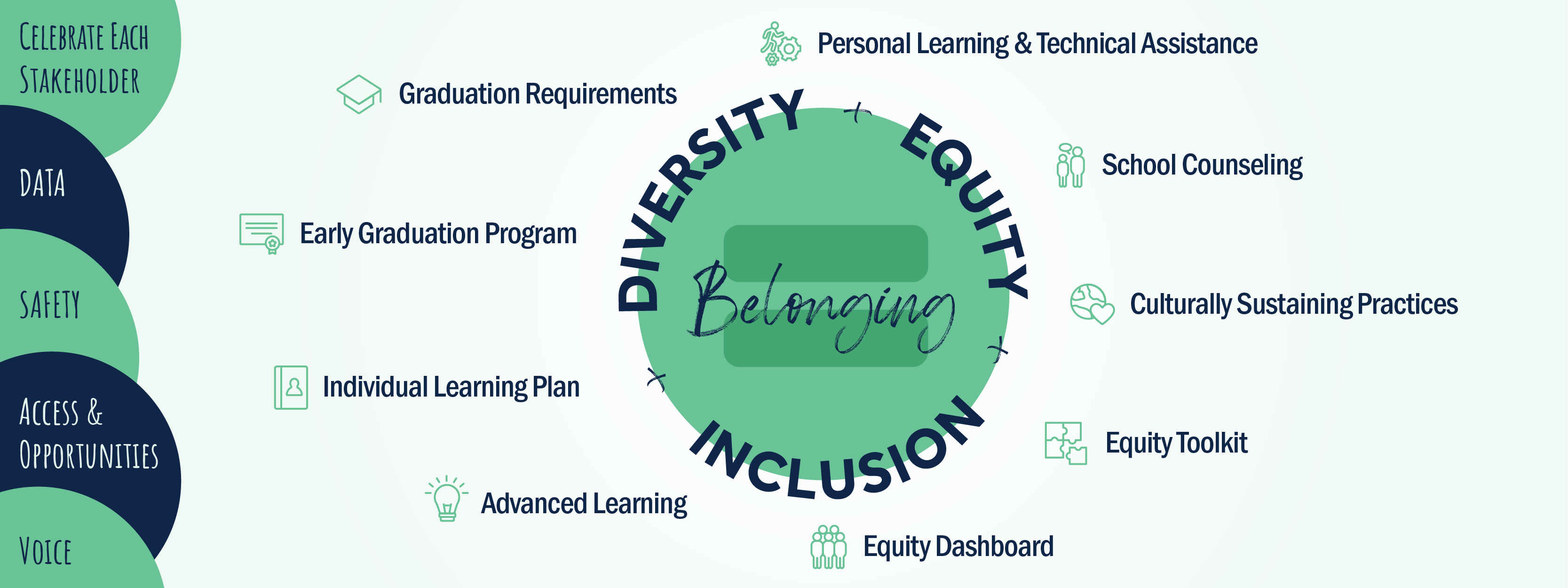
Welcome to Where You Belong!
Our Vision
Each student and educator in Kentucky feels a sense of belonging.
The Kentucky Department of Education (KDE) Division of Diversity, Equity, Inclusion and Belonging (DEIB), which is a part of the Office of Teaching and Learning, is committed to fostering an inclusive learning environment in which all Kentucky public school students receive equitable access and opportunities.
Our Mission
Create and deepen partnerships to remove long-standing barriers to equity by providing supports in developing an equity lens, elevating student, family and educator voice, and promoting equitable, inclusive and healing learning communities.
In order to achieve our vision, our mission outlines how we will help our educators and students across the state feel a sense of belonging. Click
here to learn more about our work.
There are three primary strategies we utilize to carry out the mission of DEIB and KDE:
1) Resources: The division provides resources and tools for students, families, educators and school leaders to help provide equitable opportunity and access to all students through the Equity Toolkit and other initiatives. Please visit Kentucky's Equity Toolkit webpage for more information about each of the puzzle pieces in the Equity Tool.
2) Elevating Educator, Family, and Student Voice Data: “If it’s about us, without us, it’s not for us.” Listening to our educators, students and families about how we can value diversity, promote equity and inclusion, and foster a sense of belonging is at the core of our mission.
Definitions
Diversity: Individual traits and differences which directly impact the engagement, inclusivity and experiences of students such as: race/ethnicity, socioeconomic status, regional differences including belong to rural areas, language, gender, sexual orientation, gender identity, country of origin, differing physical and cognitive abilities, personality and learning styles, as well as veterans and military families, cultural, political, religious or other affiliations.
Equity: The promotion of access, opportunity and advancement of all individuals, including those in underserved communities, in order to identify and eliminate conditions that prevent the ability of all students to reach their full potential.
The term ‘underserved communities’ refers to populations sharing a particular characteristic, as well as geographic communities, that have been systematically denied a full opportunity to participate in aspects of economic, social and civic life including "persons who live in rural areas; veterans and military spouses; and persons otherwise adversely affected by persistent poverty, discrimination, or inequality. Individuals may belong to more than one underserved community and face intersecting barriers." (Federal Executive Order No. 13985, 2021, p. 7009, Federal Executive Order No. 14035, 2021, p. 34594).
Inclusion: The intentional act of creating an environment that fosters mutually respectful relationships in which each student, regardless of intellectual, social, cultural and geographic background, is welcomed, supported and valued as fully participating members of society.
Belonging: The degree to which learners believe, experience, and feel that they are accepted by adults and peers, as well as respected as a valued contributor in their learning and social environment.